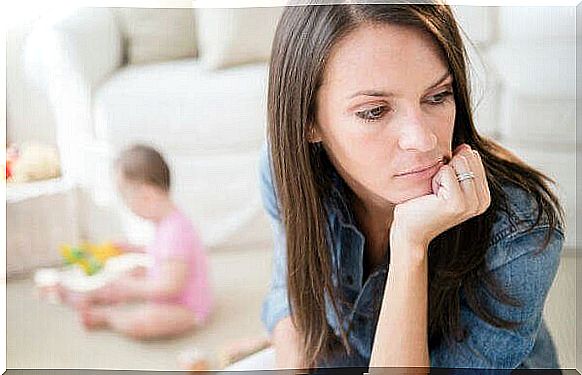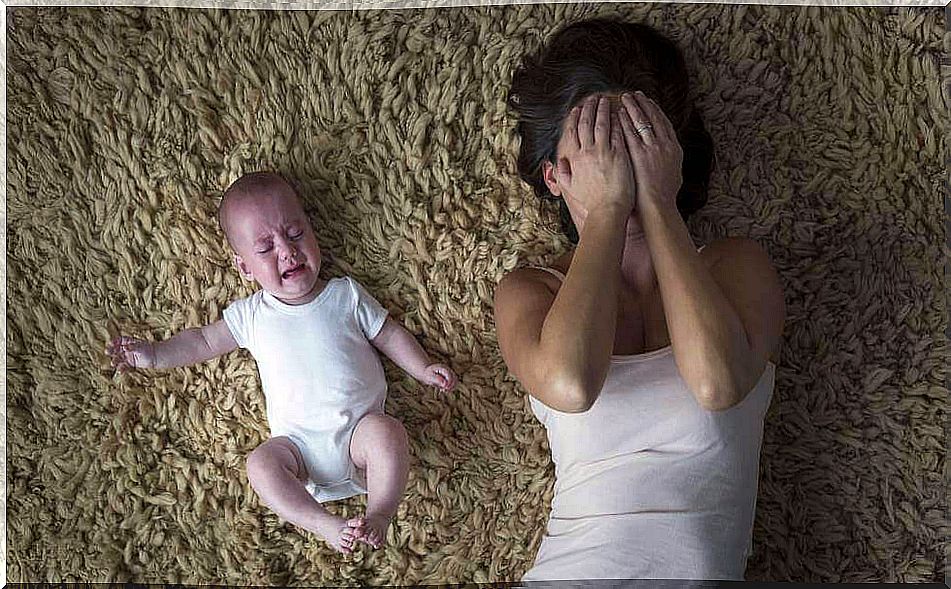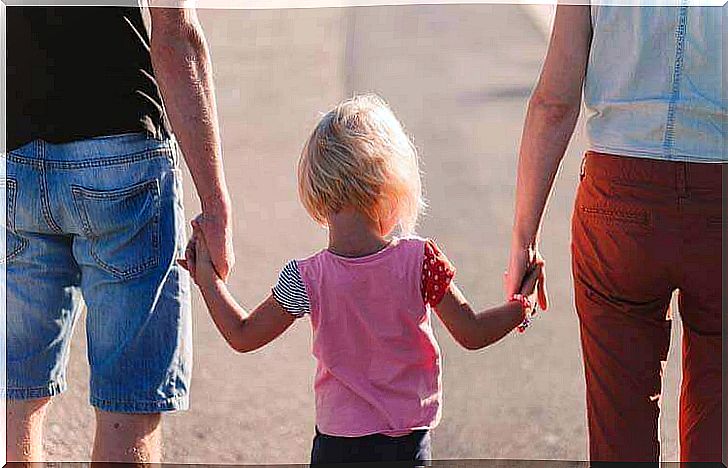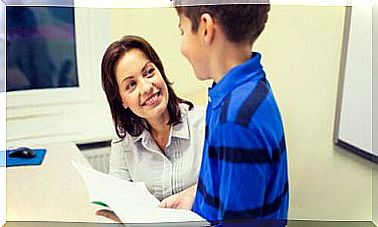Post-adoption Depression, Misunderstood Risk

Post-adoption depression is a fairly common, but not mandatory, response to changes following an adoption. The new experience and the difficulty in understanding some of the child’s needs can generate a sense of overwhelm and a negative emotional response in the new parents.
Adopting is a challenge that also involves physical and emotional fatigue and in some cases requires specialist help. The arrival of a new child, whether biological or adoptive, is usually greeted with cheer, happiness or euphoria.
In some adoptive parents, however, negative emotions, such as sadness or frustration, may predominate. Emotions that are also recorded in biological parents after childbirth. When these states persist over time, we speak of post-adoption depression .
Post-adoption depression: a little known risk
Unlike post-adoption depression, postpartum depression is seen as a possibility, even after an uncomplicated pregnancy. In this sense, great progress has been made in recent years; in many contexts and in the family it is spoken about openly and it is considered to all intents and purposes a disease.

It is estimated that between 50 and 80% of women who have given birth to a child may suffer from mild postpartum depression, 10% severely. The cause appears to lie in hormonal changes.
Post-adoption depression, however, does not enjoy the same social understanding as it is seen by most as “illogical” in some way. This form of depression, therefore, is not widely accepted or understood, but the statistics speak for themselves. The few studies carried out to date show a good percentage of incidence.
When there is no understanding and support
The sense of connection and bond between parents and adoptive child develops two to six months after adoption. First-time adoptive mothers tend not to ask for help. The fear is of being judged “not ready” or even blamed: “You could have thought about it before starting the adoption process”.
In this way, new mothers are afraid to confide, especially to psychologists or social workers, their difficulties in adapting to the new life.
The situation, already difficult, can become even more complicated. Just think, for example, that generally the help offered to biological parents by their social circle is very different from what is usually received after an adoption.

Family members of a couple of adoptive parents have a hard time understanding why the woman does not feel fully happy now. In the end, he made a dream come true for a long time, what seemed like a clear and precise desire.
We therefore suffer in silence, overwhelmed by shame, guilt and the fear of having disappointed everyone. New parents are often the first to not understand, to ask the same questions without finding any other answer than accusing them of being irresponsible, guilty or fickle.
Causes of Post Adoption Depression
What is the reason for such a high percentage of people suffering from this disorder? Most adoptive parents spend years longing for a child to love. Long waits, hopes – not always fulfilled – and dreams can create unrealistic expectations about parenting.
New parents may experience the ambivalence of their emotions with a sense of guilt. On the one hand they love the adopted child, on the other they may feel disappointed or angry if the child does not meet their expectations.
The instant bond with the new family member and love at first sight correspond to an unrealistic vision. Falling in love with a foster child is like falling in love with your partner. The initial passion and euphoria soon give way to a slow and difficult process: getting used to and adapting to the presence of another human being in one’s daily life.

How to cope with post-adoption depression?
It is not always easy to adapt to the changes that adopting a child entails. However, some guidelines may help:
- As soon as you get home from the place of adoption, make sure you have quality time to share.
- Don’t feel guilty if you don’t want to be visited. At the same time, accept the help you need. You are not bad mothers or bad fathers if you can’t do it all by yourself.
- Try to extend maternity leave as much as possible.
- Get enough sleep and exercise. Exercise has been proven to improve mood.
- Take your children for a walk. You will have fun together and strengthen your bond.
- Don’t be afraid to express yourself. Stay in touch with forums or groups of adoptive parents. Look for people who are having a similar family experience.
- Ask your circle of relatives and friends to understand and respect your decisions. Let them know that you are ready to listen, but that you have personal criteria and you will have the last word on your children.
- Make time for yourself and your partner. If you have other children, don’t neglect them and give them attention too.
- Accept your limits, don’t be afraid to fail. We are human beings, we are not perfect, we don’t have to prove anything.
Summing up…
Post-adoption depression is a mood disorder that in many cases feeds on misunderstanding (on the part of the environment and those who suffer from it). An adoptive parent who fears that their expectations will not be met can come to feel deeply sad and discouraged.
If you recognize yourself in this situation, the best thing to do is to ask for the help of a specialist. Don’t be afraid to share your experiences – you will receive understanding and support.









